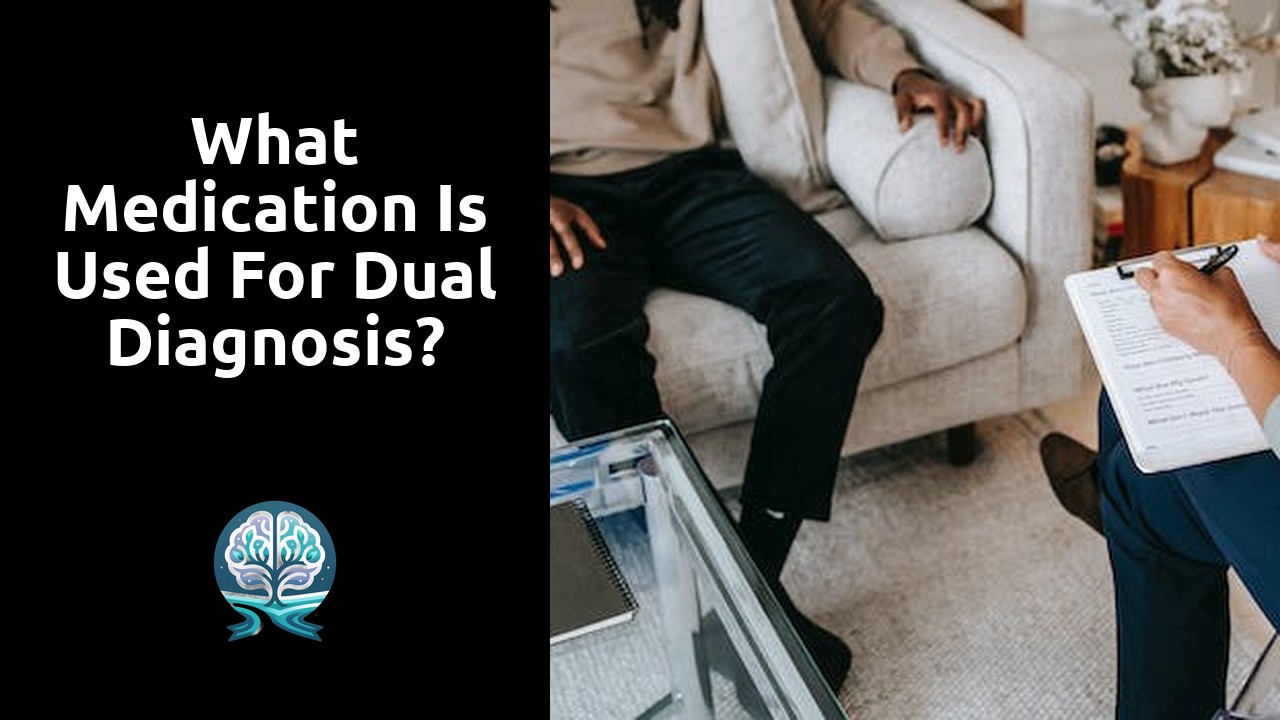What medication is used for dual diagnosis?

Mood Stabilizers for Dual Diagnosis
Mood stabilizers are commonly used in the treatment of dual diagnosis, which involves both a mental health disorder and substance abuse. These medications are designed to help regulate mood swings and stabilize emotions, making them a crucial part of managing conditions such as bipolar disorder and co-occurring substance use disorders. By targeting the underlying causes of mood instability, mood stabilizers can help individuals achieve greater stability in their emotional well-being.
When prescribed as part of a comprehensive treatment plan, mood stabilizers can assist in reducing the severity and frequency of mood swings, which in turn can help individuals better cope with the challenges of managing both a mental health disorder and substance abuse. It is essential for healthcare providers to carefully monitor the effects of these medications and adjust dosages as needed to ensure optimal effectiveness while minimizing potential side effects. Proper medication management, alongside therapy and other forms of support, plays a vital role in promoting long-term recovery and improved quality of life for individuals with dual diagnosis.
Balancing Mental Health and Substance Use
Individuals with dual diagnosis face complex challenges when it comes to managing both their mental health condition and substance use disorder. Finding a balance between addressing mental health symptoms and avoiding triggers for substance use is crucial for successful treatment. It is essential for healthcare providers to consider the interplay between these two conditions when developing a comprehensive treatment plan.
In many cases, addressing the mental health condition is a priority, as untreated symptoms can contribute to substance abuse. By finding effective ways to manage mental health symptoms, individuals may be less inclined to use substances as a means of coping. This can include a combination of therapy, medication, and lifestyle changes to help individuals achieve stability in their mental health while also addressing their substance use disorder.
Controlling Anxiety in Dual Diagnosis Patients
Dual diagnosis patients often experience anxiety as a symptom of their mental health condition or substance use disorder. Managing anxiety in these individuals requires a comprehensive approach that may include medication. Anti-anxiety medications, such as benzodiazepines and buspirone, are commonly prescribed to help alleviate symptoms of anxiety in dual diagnosis patients. These medications work by calming the central nervous system, which can reduce feelings of anxiety and promote a sense of relaxation.
It is important for healthcare providers to closely monitor dual diagnosis patients who are prescribed anti-anxiety medications to ensure the effectiveness of the treatment and to minimize potential risks of misuse or dependency. Dosages should be carefully titrated based on the individual's response to the medication, and patients should be regularly assessed for any signs of improvement or adverse effects. In addition to medication, therapy and other non-pharmacological interventions should be integrated into the treatment plan to address the underlying causes of anxiety and promote long-term recovery for dual diagnosis patients.
Medication Management Strategies
When it comes to managing dual diagnosis, utilizing medication is a crucial component of treatment. It is important to establish a comprehensive medication management strategy in order to effectively address both the mental health and substance use aspects of the individual's condition. This strategy typically involves a combination of mood stabilizers and anti-anxiety medications to help stabilize mood swings and manage anxiety symptoms.
In order to ensure the success of the medication management strategy, close monitoring of the individual's progress is essential. This involves regular check-ins with healthcare providers to assess the effectiveness of the medications and make any necessary adjustments to dosages. It is also important to actively involve the individual in the decision-making process regarding their medication management, ensuring that they feel empowered and engaged in their treatment plan.
Monitoring Progress and Adjusting Dosages
It is crucial for healthcare providers to closely monitor the progress of individuals with dual diagnosis to ensure the effectiveness of the prescribed medications. This monitoring process involves regular check-ins with patients to assess any changes in symptoms or side effects. By keeping track of how the individual responds to the medication, healthcare providers can tailor the dosage or switch to a different medication if needed.
Adjusting dosages is a common practice in the treatment of dual diagnosis to achieve the optimal therapeutic effect while minimizing potential side effects. Healthcare providers may increase or decrease the dosage based on the individual's response and any changes in their mental health or substance use symptoms. It is essential for individuals with dual diagnosis to communicate openly with their healthcare providers about how the medication is affecting them so that adjustments can be made as necessary to support their overall well-being.
FAQS
What are mood stabilizers and how are they used in dual diagnosis?
Mood stabilizers are medications that help regulate mood swings in individuals with mental health disorders like bipolar disorder. In dual diagnosis, they are used to address both the mental health and substance use aspects of the condition.
How do anti-anxiety medications help in dual diagnosis?
Anti-anxiety medications help in managing symptoms of anxiety that often co-occur with mental health and substance use disorders in dual diagnosis. They can help reduce feelings of panic, worry, and fear.
What are some medication management strategies for dual diagnosis?
Some medication management strategies for dual diagnosis include closely monitoring progress, adjusting dosages as needed, and working with healthcare providers to ensure a comprehensive treatment plan.
How important is it to balance mental health and substance use in dual diagnosis treatment?
Balancing mental health and substance use is crucial in dual diagnosis treatment as both aspects of the condition need to be addressed for successful recovery. Medications play a key role in helping individuals manage both components effectively.
How can progress be monitored when using medication for dual diagnosis?
Progress can be monitored by regularly assessing symptoms, tracking any side effects or changes in mood, and communicating openly with healthcare providers. Adjusting dosages or trying different medications may be necessary based on progress.